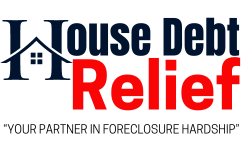A short sale is a real estate transaction initiated by a homeowner who finds themselves unable to keep up with their mortgage payments due to financial distress. This can stem from various reasons such as job loss, medical emergencies, divorce, or other unforeseen circumstances. In such a scenario, the homeowner makes the difficult decision to sell their property for an amount that is less than the outstanding balance on their mortgage loan.
The process of a short sale typically begins with the homeowner seeking approval from their lender to proceed with the sale. This involves providing documentation of financial hardship and demonstrating that the property’s market value is lower than the mortgage balance. Upon review, the lender may agree to accept the proceeds of the sale as full satisfaction of the debt, despite it being less than what is owed.
Top (5) questions asked by a homeowner
- How does a short sale work?
A short sale involves selling your home for less than the outstanding mortgage balance, with approval from your lender.
- Will I owe the remaining mortgage balance after the short sale?
Whether you’ll owe the remaining balance after the sale depends on negotiations with your lender and state laws.
- What are the credit score implications?
A short sale can negatively impact your credit score, but typically less severe than foreclosure.
- Are there alternatives to a short sale?
Alternatives may include loan modifications, refinancing, or foreclosure avoidance programs.
- What documents are needed for a short sale?
You’ll likely need to provide financial statements, a hardship letter, tax returns, and other documents as required by your lender for the short sale process.
One of the key features of a short sale is the involvement of a third-party buyer who purchases the property from the distressed homeowner. This buyer is not affiliated with the lending institution and is typically seeking to acquire the property at a discounted price. The sale proceeds are then remitted to the lender, effectively closing out the mortgage loan.
It’s important to distinguish a short sale from a foreclosure. In a short sale, the homeowner still maintains ownership of the property throughout the process. This means that they retain certain rights and responsibilities associated with homeownership, such as maintenance and upkeep of the property. In contrast, foreclosure involves the legal process by which the lender takes ownership of the property due to the homeowner’s failure to make mortgage payments, resulting in eviction.
Before a property enters foreclosure, it may undergo a pre-foreclosure stage where the homeowner has fallen behind on mortgage payments but still retains ownership. During this time, the homeowner may explore options to avoid foreclosure, such as a short sale. However, if a resolution is not reached and the foreclosure process is completed, ownership of the property transfers to the lender, who becomes the seller.
Note:
Once a property becomes real estate owned (REO) as a result of foreclosure, the lender assumes responsibility for managing and selling the property. This often involves assessing the condition of the property, making any necessary repairs or improvements to enhance its marketability, and ultimately listing it for sale on the open market.
In the event that a short sale is unsuccessful, and the property progresses to foreclosure, the lender may initiate eviction proceedings to remove any occupants from the property. This process can vary depending on state laws and may involve negotiations between the lender and the former homeowner, including arrangements such as “cash for keys” agreements to facilitate a smooth transition.
Furthermore, it’s worth noting that there are alternative options available to homeowners facing financial hardship aside from short sales and foreclosures. These options include seller financing, deed in lieu of foreclosure, loan modifications, and various other forms of workout agreements. Each of these alternatives has its own implications and considerations, and homeowners are encouraged to seek professional guidance to determine the best course of action based on their individual circumstances.
At House Debt Relief, we want to assure you that we will never ask for money or mislead you in any way. Your success is our success, and as a homeowner, you will always be our first priority. We understand the financial pressures of foreclosure proceedings, which is why we offer our expert assistance at no out-of-pocket cost to you. Rest assured; we are committed to providing you with comprehensive support without adding any financial burden. We also prioritize educating you so that you can make informed decisions. If you currently have an auction date looming, we’ll work together to determine the best solution, considering factors such as the time frame, past due mortgage, and type of loan. To assist us, we’ll need you to provide a current bank statement, including details of not just your principal and interest, but also any second mortgages, HOA dues, or liens.











